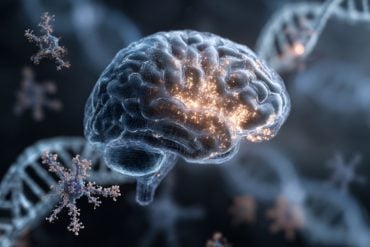Summary: Women who experience menopause before age 40 are more likely to face cognitive decline than those who enter menopause after age 50. The findings, based on longitudinal data from nearly 5,000 women, suggest that early menopause may be an independent risk factor for dementia, even after accounting for depression and other variables.
Women with later menopause performed better on memory and orientation tests than men, while hormone replacement therapy showed no significant cognitive effect. The study adds to growing evidence that sex-specific factors influence dementia risk and may help inform future prevention strategies.
Key Facts:
- Early Menopause Risk: Women entering menopause before age 40 showed worse cognitive outcomes than those after 50.
- No HRT Benefit: Hormone replacement therapy did not improve cognitive function in this study.
- Sex-Specific Insight: Women with later menopause outperformed men in cognitive tasks, highlighting unique risk profiles.
Source: Tohoku University
A team of researchers from the Tohoku University Graduate School of Medicine and Tokyo Metropolitan Institute of Medical Science found that women who entered menopause before the age of 40 had worse cognitive outcomes than women who entered menopause after the age of 50.
This finding may be useful for clinicians, when assessing their patient’s risk of developing dementia.

These findings were published in Alzheimer’s & Dementia: The Journal of the Alzheimer’s Association on April 15, 2025.
The research team chose to investigate this link because dementia disproportionally affects women worldwide, suggesting that dementia may have risk factors that are specific to women.
In addition, early menopause is associated with higher risk of depression in later life, which is a known risk factor for dementia. However, direct evidence regarding the impact of earlier menopause on the age-related trajectories of depressive symptoms and cognitive function is scarce.
The team used data from the English Longitudinal Study of Ageing, classifying age at menopause into three categories: <40, 40-49, and ≥50 years.
The study included 4,726 women and 4,286 men who were assessed in measures of cognitive functioning such as orientation, immediate and delayed recall, and verbal fluency.
The team tested the association between sex and age at menopause, and cognitive functioning two years later after adjusting baseline modifiable risk factors for dementia.
“When looking for associations, we want to rule out as many other modifiable risk factors for dementia as possible,” explains lead author Miharu Nakanishi (Tohoku University Graduate School of Medicine).
“Since early menopause increases the risk of depression, which then increases the risk of dementia, we had to control for this factor to determine if early menopause in of itself was a direct risk factor.”
After controlling for baseline outcome measures and other covariates (such as other modifiable dementia risk factors), menopause at <40 years, compared with ≥50 years, was significantly associated with worse 2-year follow-up orientation, as well as immediate and delayed recall.
Cognitive function in women who entered menopause at ≥50 years old was actually better than the comparison group of men. Hormone replacement therapy (HRT) (a treatment to minimize menopausal symptoms) was not associated with cognitive function.
The results imply that women who experience early menopause may constitute a sex-specific high-risk group for cognitive decline. Further research is warranted to elucidate the underlying mechanisms of the relationship between levels of female hormones and cognitive function.
“Understanding this relationship in-depth could potentially help us design treatments that delay the onset of dementia in at-risk patients,” says Nakanishi.
About this menopause and cognition research news
Author: Public Relations
Source: Tohoku University
Contact: Public Relations – Tohoku University
Image: The image is credited to Neuroscience News
Original Research: Open access.
“Menopause at an Early Age Can Exacerbate Cognitive Decline” by Miharu Nakanishi et al. Alzheimer’s & Dementia
Abstract
Menopause at an Early Age Can Exacerbate Cognitive Decline
INTRODUCTION
Evidence is scarce regarding the role of menopause in age-related cognitive function trajectories associated with increased depressive symptoms. We examined the longitudinal association among sex and age at menopause, depressive symptoms, and 2-year follow-up cognitive function.
METHODS
We used data from the English Longitudinal Study of Ageing, classifying age at menopause into three categories: < 40, 40 to 49, and ≥ 50 years. The study included 4726 women and 4286 men, using multilevel panel data regression to depict age trajectories.
RESULTS
Later menopause (≥ 50 years) was significantly associated with fewer depressive symptoms and better cognition than earlier menopause (< 40 years). Men showed significantly fewer depressive symptoms and worse cognition than women with later menopause.
DISCUSSION
Earlier menopause was significantly associated with worse 2-year follow-up cognition after adjusting for baseline depressive symptoms, cognition, and lifestyle factors. Dementia risk-reduction strategies should consider women who undergo early menopause as a sex-specific high-risk group.







